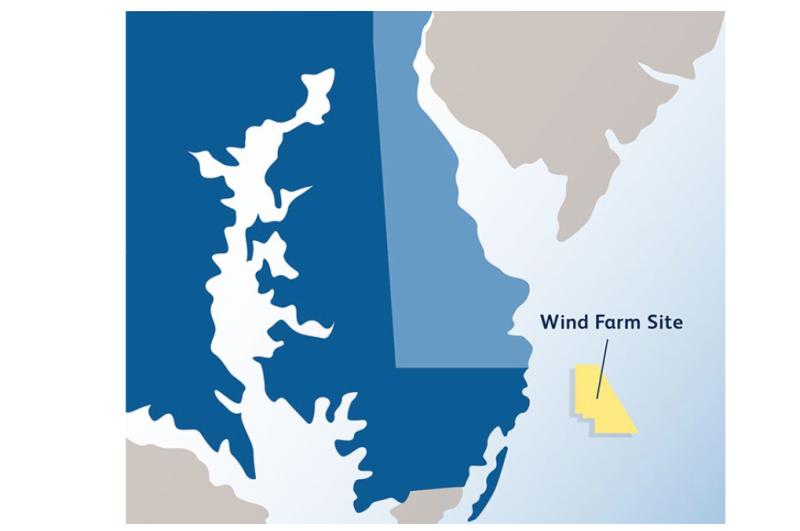Attorney general: ACT violated FOIA

The Association of Coastal Towns is a public body that violated Delaware’s Freedom of Information Act by failing to conduct certain meetings in accordance with open meeting requirements, the Attorney General’s Office ruled May 28.
The ruling was in response to a petition filed by South Bethany property owner Edward E. Bintz in April, alleging violations by ACT, which comprises Bethany, South Bethany, Dewey, Henlopen Acres, Rehoboth, Lewes and Fenwick Island; Lewes and Fenwick Island were not named in the petition.
In the petition, Bintz stated that ACT failed to comply with FOIA and denied the public a role in its decision-making on matters of public interest related to US Wind’s offshore wind project.
The petition alleged ACT violated FOIA over the past two years; the Department of Justice dismissed claims of violations that occurred more than six months before the petition was filed, pursuant to rules of procedure for FOIA petitions and determinations.
In the opinion, Deputy Attorney General Dorey L. Cole stated the petition asserts ACT holds regular non-public meetings without required notice and public participation; that ACT did not maintain required minutes for two December 2023 meetings; that ACT’s US Wind Committee met without public notice or participation; and that ACT failed to maintain an online portal for receiving FOIA requests, to implement a FOIA request policy, and to designate a FOIA coordinator.
ACT replied to the petition via its attorney May 10, Cole stated, asserting it is not a public body, but instead a voluntary organization comprising members from Delaware coastal towns that was not created by the General Assembly or the legislative bodies of any participating member.
Cole said she conducted a two-part analysis to determine if ACT is a public body, and found that ACT met those deciding factors.
The first factor involves whether an entity is a “regulatory, administrative, advisory, executive, appointive or legislative body of the state, or of any political subdivision of the state,” including a committee, advisory board, association, group, panel or council established by the General Assembly or appointed by any body or public official of the state or other government agency.
If the first part is met, Cole stated, the determination must be made as to whether the entity is supported in whole or part by any public funds, expends or disperses any public funds, or is implied or charged to advise or make reports, investigations or recommendations.
Seven member towns signed a charter to establish ACT as an unincorporated association that may “act for and on behalf of its members to promote, conduct and protect the general welfare and common interests of its members,” Cole wrote.
Each member has a single vote, with a simple majority deciding issues, Cole wrote, and annual dues are required to pay for any administrative expenses. All member municipalities were established by charters enacted by the General Assembly.
“Therefore, ACT, established by bodies established by the General Assembly, is itself a public body,” Cole states. “As ACT collects annual dues from its members and disburses those public funds for expenses, including consultant services, the second prong is also met.”
The dues of ACT members, except Fenwick Island, were committed to hire a consultant regarding proposed Maryland Public Service Commission awards for US Wind and Ørsted and future offshore Central Atlantic lease areas off the coasts of Delaware and Maryland, Cole states.
Regarding any recommended remediation, Cole wrote, any action taken at a meeting in violation of Delaware code may be voidable by the Court of Chancery.
“The authority to invalidate a public body’s action, or to impose other relief, is reserved for the courts,” Cole wrote.
Cole cited the Delaware Court of Chancery in writing that the “remedy of invalidation is a serious sanction and ought not to be employed unless substantial public rights have been affected and the circumstances permit the crafting of a specific remedy that protects other legitimate public interests.”
The court would have to consider the impact of “adverse consequences upon innocent parties” in determining whether invalidation is appropriate, Cole stated.
In her ruling, Cole advised Bintz to review Delaware Code Title 29 § 10005 in determining whether he would like to file suit, which must be done within 60 days of his awareness of violative actions but no later than six months after the date of action.
“For example, the claim relating to the Dec. 1, 2023 meeting will be time-barred by the six-month limitation on June 1, 2024, or possibly sooner depending on when you learned of the violative action,” Cole wrote.
By email May 29, Bintz said that overall, he was pleased with the Attorney General Office’s decision and appreciated that it was issued in a timely manner.
“Follow-up by ACT will be important,” Bintz said. “At a minimum, it should implement all of the recommended remediation measures. It should also publicly disclose the process it uses to ensure full implementation. The press should follow up with ACT regarding remediation so that the public knows what steps are taken.”
Bintz said he feels each ACT member town should follow up by quickly reviewing the US Wind project with full public involvement.
“That’s generally been lacking since I think the towns were deferring to ACT,” Bintz said. “But, unfortunately, ACT was acting outside of public view and was primarily focused on obtaining cash payments from US Wind for member towns.”
In particular, Bintz said, the towns should be weighing in on US Wind’s plan to bring the power lines ashore at 3R’s Beach.
“[ACT] also need to make sure that they understand the project’s impact on the viewshed,” Bintz said. US Wind has said on multiple occasions that BOEM’s single-frame 50mm lens simulation of the view from Bethany Beach is a not accurate representation of what its wind farm will look like. “I think US Wind is wrong on this. The public deserves reliable information.”
ACT serves an important function for its member towns by providing a way for the towns to work collectively on matters of common interest, Bintz said.
“I think that the public input that will come from ACT’s complying with FOIA will serve to strengthen ACT and lead to improved outcomes,” he said.
Cole recommended that ACT and its US Wind Committee discuss items considered at noncompliant meetings and ratify any votes taken at future meetings held in compliance with open meeting requirements.
Further, she wrote, ACT should make available any existing meeting minutes or use available meeting materials to create minutes, appoint a FOIA coordinator, implement a FOIA request policy and create an online portal for accepting FOIA requests.
Bethany Beach Mayor Rosemary Hardiman, the current ACT president, said ACT is reviewing the attorney general’s opinion on the issue, which affects several other organizations in Delaware.
“We will consult with our legal counsel on options and decide on a way forward in the best interests of our separate communities,” Hardiman said by email May 29.
Fenwick Island Mayor Natalie Magdeburger, whom Hardiman said submitted a response to the deputy attorney general supporting Bintz’s petition, said by email May 29 that ACT as an organization is valuable to the coastal communities which it serves.
“However, this decision makes clear that ACT should not be used to hide activities from the public that the ACT mayors represent,” Magdeburger said.
Magdeburger said she warned mayors engaging in what she described as “secret negotiations” with US Wind two years ago, made the proposed negotiations public to the Fenwick community and reiterated her warning to ACT after the April 2024 meeting.
“Each time, the mayors involved wanted to debate whether ACT was subject to FOIA,” she said. “The DOJ’s decision ends the debate, and I am hopeful that the mayors involved will do the right thing now and disclose all of the secret discussions that were occurring between US Wind and the mayors during the last two years. The public has a right to know, and the mayors have an obligation to disclose.”
Hardiman said there are no facts in the record to support Magdeburger’s assertions that she warned or affirmatively advised other mayors in ACT two years ago that hiring a consultant during consideration of offshore wind issues violated FOIA.
“On the contrary, the record of the meetings at that time, including Mayor Magdeburger’s statements, clearly show that she wanted to emphasize that while Fenwick Island was opposed to US Wind’s planned wind farms, and a consultant contract, they did not want to waive any right to negotiate community benefit with US Wind or Ørsted if the wind farms were built,” she said. “The record further shows that in an ACT meeting in April 2024, after Mr. Edward Bintz had requested documents from ACT under FOIA, Mayor Magdeburger did raise a FOIA issue.”
Magdeburger said she questioned why US Wind is engaging in secret negotiations with municipality stakeholders and making donations to environmental groups that may affect the approval process if the plan is good for Delaware.
US Wind's Delaware Development Manager Mike Dunmyer said his company has engaged in public conversations with mayors, town councils, civic organizations and residents for years about the project and US Wind’s desire to agree on a benefits package.
“We’ve presented at all the participating towns’ council meetings and answered every question asked at those meetings,” Dunmyer said by email May 30. “We will always be willing to speak with anyone about our project, including town councils and mayors."
Regarding the proposed community benefit agreement from US Wind, Hardiman said that in January 2024, each municipality involved considered the proposal the same way they would treat any other agreement or contract.
“That is, they submitted the proposal to their respective councils or commissions at open meetings for consideration and deliberation, all of which was subject to FOIA,” Hardiman said. “The public meeting in Bethany Beach was well attended, and everyone who wished to comment on the proposal had an opportunity to do so.”
US Wind is majority owned by Italian company Renexia SpA, Magdeburger said, and was critical of Fenwick’s public tactics in seeking to have open debate on the wind farm project.
“Should we follow US Wind’s lead and not encourage robust open discussions about the marine life environmental risks, expected economic tourism and property value losses as well as military safety concerns that would be a consequence of building the wind farms off our coast and providing cable access to the grid at our pristine 3R’s beach?” Magdeburger asked. “Don’t we deserve to truly know what we are giving up and being exposed to if this project is approved?”
Editor’s note: This story has been updated with a corrected quote from Edward Bintz regarding US Wind’s stance on the accuracy of BOEM’s single-frame 50mm lens simulation of the view of turbines from Bethany Beach. US Wind has said the simulation is not an accurate representation. Bintz disagrees and believes the BOEM simulation is an accurate representation.














































